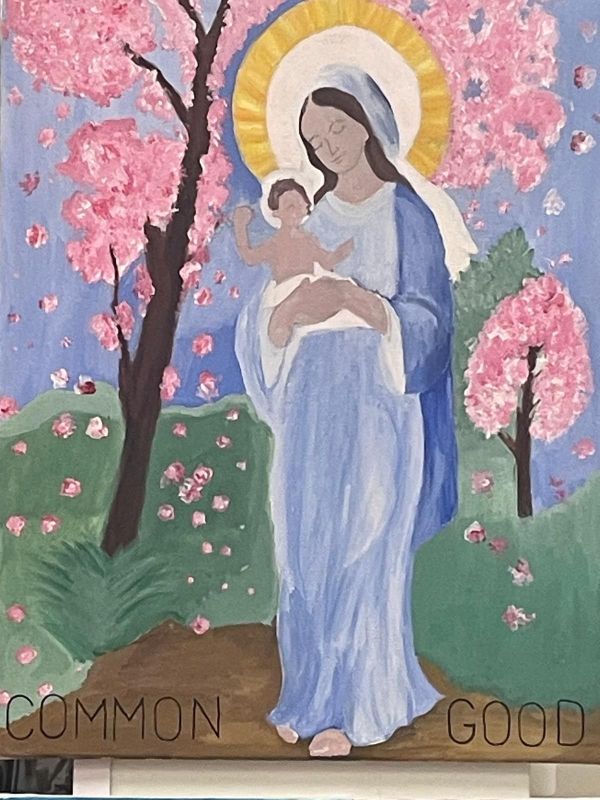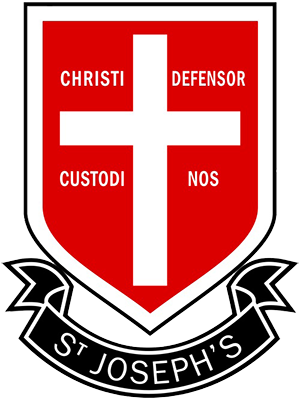Our School
The Common Good

Work by Apollonia Grzeskiewicz
Blessed are the peacemakers, for they shall be called sons of God. Mark 5:9
At St Joseph’s we strive for the common good in all we do. The fruits of the earth belong to everyone and should be shared. No one should be excluded from the gifts of creation. Commitment to the common good means respecting the rights and responsibilities of all people
Our actions have an impact on wider society. It is up to every one of us – governments, communities and individuals – to promote the common good. When we make decisions, we should choose to consider the good of all
No one should miss out on the opportunity to grow and fulfil their potential. Each and every person deserves to have what they need to survive and flourish
Pope Francis wrote, in Evangelii Gaudium, #235, 2013: "The whole is greater than the part, but it is also greater than the sum of its parts… We constantly have to broaden our horizons and see the greater good which will benefit us all. But this has to be done without evasion or uprooting... We can work on a small scale, in our own neighbourhood, but with a larger perspective.”
Where is it seen at St Joseph’s
The Catholic Social Teaching principle of the Common Good is reflected throughout the curriculum by emphasizing collective responsibility and the well-being of all people. In Religious Education (RE), students explore the rights and responsibilities of individuals within a community, including studying the work of Christian charities supporting those affected by conflict and Pope Francis's efforts to ease religious tensions. The science curriculum challenges students to consider the societal benefits and ethical implications of renewable energy. History lessons examine movements for justice and rights, such as the Civil Rights Movement and the Indian Uprising, showing how societal change benefits the common good.
In Geography, students analyze the balance between economic gain and environmental protection, focusing on climate change and the North-South Divide. French and Spanish curricula explore issues of social responsibility and multiculturalism, while PSHE covers topics like drug use, reproductive health, and workplace citizenship. In subjects like Technology and Drama, students examine how individual actions, design choices, and empathy contribute to the well-being of others. The study of law in both Sociology and Psychology emphasizes justice and human rights, reinforcing the idea that laws and systems should serve the common good.
Together, these subjects foster a deep understanding of how individual actions, social responsibilities, and global concerns.
In our pastoral care students and staff will come together and be involved in extra-curricular activities such as Model UN and by our form campaigning to seek the common good by writing letters to our MP seeking social justice.

